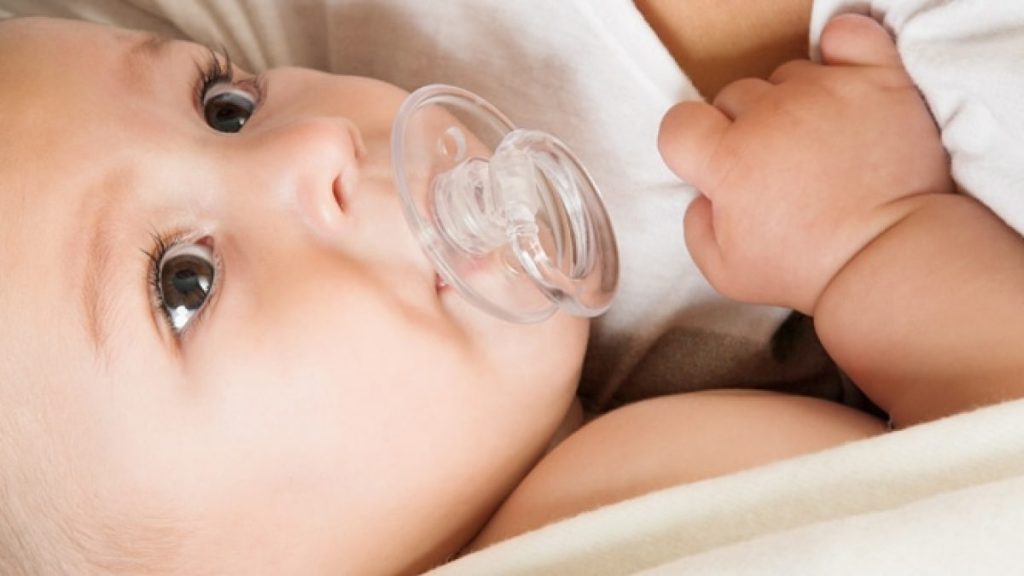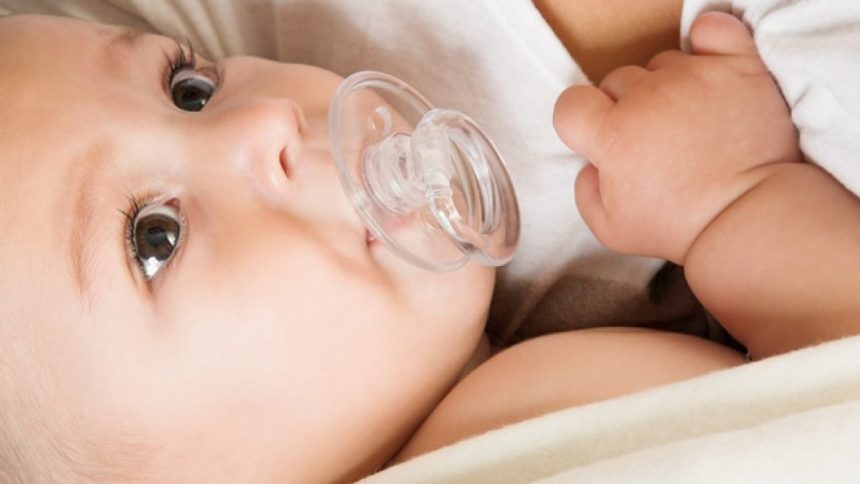The intimate bond between mother and child is often epitomized by breastfeeding, a practice celebrated for its numerous nutritional and developmental benefits. However, many parents encounter a common scenario: infants using the breast not primarily for nourishment but rather as a source of comfort—a behavior akin to using a pacifier. This phenomenon raises critical questions regarding the implications of such habits on both the infant’s psychological and physiological health, as well as the mother’s well-being.
While some experts argue that this behavior is a natural and instinctive part of early childhood development, others express concerns about potential long-term effects on breastfeeding practices and maternal autonomy. In this article, we delve into the nuances of this topic, examining the underlying reasons for this behavior, the effects it may have on infants and mothers, and the broader cultural and psychological implications, ultimately seeking to provide a balanced view on whether the act of infants utilizing the breast as a pacifier warrants concern.
Understanding the Natural Instinct: The Role of Breastfeeding in Infants Comfort

Breastfeeding serves multiple vital functions in an infant’s early life, extending beyond mere nutrition to encompass aspects of emotional and psychological comfort. When an infant instinctively latches onto the breast, it initiates a complex interaction that fulfills not only their hunger but also their innate need for security and reassurance. This primal behavior draws from an ancient survival mechanism, where proximity to the mother fosters a sense of safety. The act of sucking triggers the release of hormones such as oxytocin, promoting bonding and emotional well-being, which are critical during those formative months.
Moreover, the reliance on breastfeeding for comfort can be seen as a natural extension of this bonding phenomenon. Infants often seek the breast not just for milk but as a soothing mechanism akin to the use of a pacifier. This instinctual behavior manifests in various ways, such as:
-
- Reduction of stress: Sucking can decrease cortisol levels in infants, calming them during moments of distress.
-
- Enhanced bonding: Frequent breastfeeding sessions reinforce the emotional connection between mother and child.
-
- Aiding development: The close physical presence encourages sensory and emotional growth in infants.
To illustrate the balance between feeding and comfort, consider the following table:
| Breastfeeding Benefits | Breast as Pacifier |
|---|---|
| Provides essential nutrients | Offers comfort and security |
| Supports immune health | Helps regulate sleep patterns |
| Encourages healthy growth | Addresses teething discomfort |
Understanding this dual role of breastfeeding can help caregivers address any concerns about infants using the breast as a pacifier. Rather than viewing this behavior through a lens of concern, it is essential to recognize its fundamental contribution to the child’s overall development and emotional health.
Potential Implications of Breast as a Pacifier: Health, Development, and Long-Term Effects
The act of using the breast as a pacifier can carry various health implications for infants. Firstly, it might contribute to issues such as **nipple confusion**, especially if the baby is introduced to bottle feeding early on. This could lead to challenges in breastfeeding and can affect the baby’s ability to latch properly. Moreover, prolonged breastfeeding solely for comfort might increase the risk of **tooth decay** if oral hygiene is not maintained. The American Academy of Pediatrics emphasizes the importance of establishing healthy feeding habits early in life, which involves differentiating between nutritional breastfeeding and comfort sucking to prevent potential dental and developmental hurdles.
Beyond immediate health concerns, there are also developmental considerations linked to using the breast as a pacifier. Infants may develop a reliance on breastfeeding for comfort, which can impede their ability to self-soothe independently. This reliance may lead to challenges in emotional regulation as children grow. It is crucial to assess **behavioral patterns** during the second year of life, as dependency on breastfeeding for comfort can correlate with issues such as **separation anxiety** or difficulty in transitioning to other comforting strategies. Monitoring these behaviors can offer insights into long-term emotional and psychological development, ultimately guiding parents and caregivers towards fostering healthier coping mechanisms.
Navigating Parental Concerns: When to Seek Guidance from Healthcare Professionals
Addressing the issue of infants using the breast as a pacifier raises several questions for parents, particularly regarding the appropriateness and potential implications for their child’s development. While it is natural for babies to seek comfort through breastfeeding, prolonged reliance on the breast for soothing can sometimes lead parents to wonder if they’re inadvertently fostering habits that may be challenging to modify later. The instinctive nature of this behavior often prompts parents to consider when it might be necessary to consult healthcare professionals to gain further insight and potential strategies for managing the situation effectively.
Parents facing concerns about breastfeeding as a soothing mechanism should consider specific indicators that may warrant professional guidance. Signs that may suggest the need for advice include:
-
- **Frequent feeding sessions** that seem to extend beyond nutritional needs.
-
- **Inability to soothe the baby** without breastfeeding, leading to frustration for both parties.
-
- **Concerns about dental health** due to extended breastfeeding.
-
- **Parental stress or anxiety** related to breastfeeding practices.
Keeping track of these signs can be beneficial in discussions with healthcare providers, ensuring that parents receive tailored advice that considers the unique dynamics of their family. Involving a pediatrician or lactation consultant may yield valuable strategies that align with the family’s goals, providing reassurance and direction that support both the child’s comfort and the parents’ peace of mind.
Promoting Healthy Feeding Practices: Strategies for Balancing Comfort and Nutrition
In the delicate balance between nurturing and nutrition, it is essential for caregivers to recognize the varying needs of infants. While breastfeeding provides comfort, it can lead to habits where the breast is primarily used for soothing rather than feeding. This practice, known colloquially as “comfort nursing,” may initially seem harmless; however, it can obscure the signals of hunger. Strategies to promote healthy feeding practices include:
-
- Understanding Infant Cues: Parents should learn to differentiate between hunger and comfort cues, allowing for a more structured feeding approach.
-
- Establishing Routine: Implementing a consistent feeding schedule could help the infant develop a better understanding of hunger and fullness.
-
- Offering Alternatives: Introducing pacifiers or other soothing methods can help to fulfill the baby’s need for comfort without relying solely on breastfeeding.
Moreover, it is crucial to ensure that feeding continues to be a source of nourishment, not just comfort. Frequent comfort nursing can potentially lead to inadequate caloric intake, affecting the infant’s growth trajectory. To maintain equilibrium in feeding practices, caregivers might consider engaging in the following tactics:
-
- Monitoring Growth Patterns: Regularly tracking weight and growth milestones can provide insight into whether the feeding habits are impacting nutrition.
-
- Consulting Health Professionals: Pediatricians or lactation consultants can offer personalized guidance tailored to the infant’s specific needs.
-
- Encouraging Gradual Transition: Slowly introducing nutrition-focused breastfeeding sessions can habituate the infant to distinct eating times and comfort periods.
In Conclusion
the phenomenon of infants using the breast as a pacifier raises a complex interplay of physiological, psychological, and cultural factors that warrant closer examination. While breastfeeding undoubtedly provides comfort and nourishment, it is essential for caregivers to recognize the potential implications of this behavior on both infant development and maternal health. As the discussions surrounding lactation continue to evolve, it remains crucial for parents and healthcare professionals to engage in open dialogues about healthy feeding practices, ensuring that both the emotional and physical needs of the infant are met. Future research should explore the long-term effects of this behavior, fostering a deeper understanding that can inform parental choices and healthcare guidelines. Ultimately, cultivating an environment where informed decisions can be made will benefit the well-being of both mother and child.


